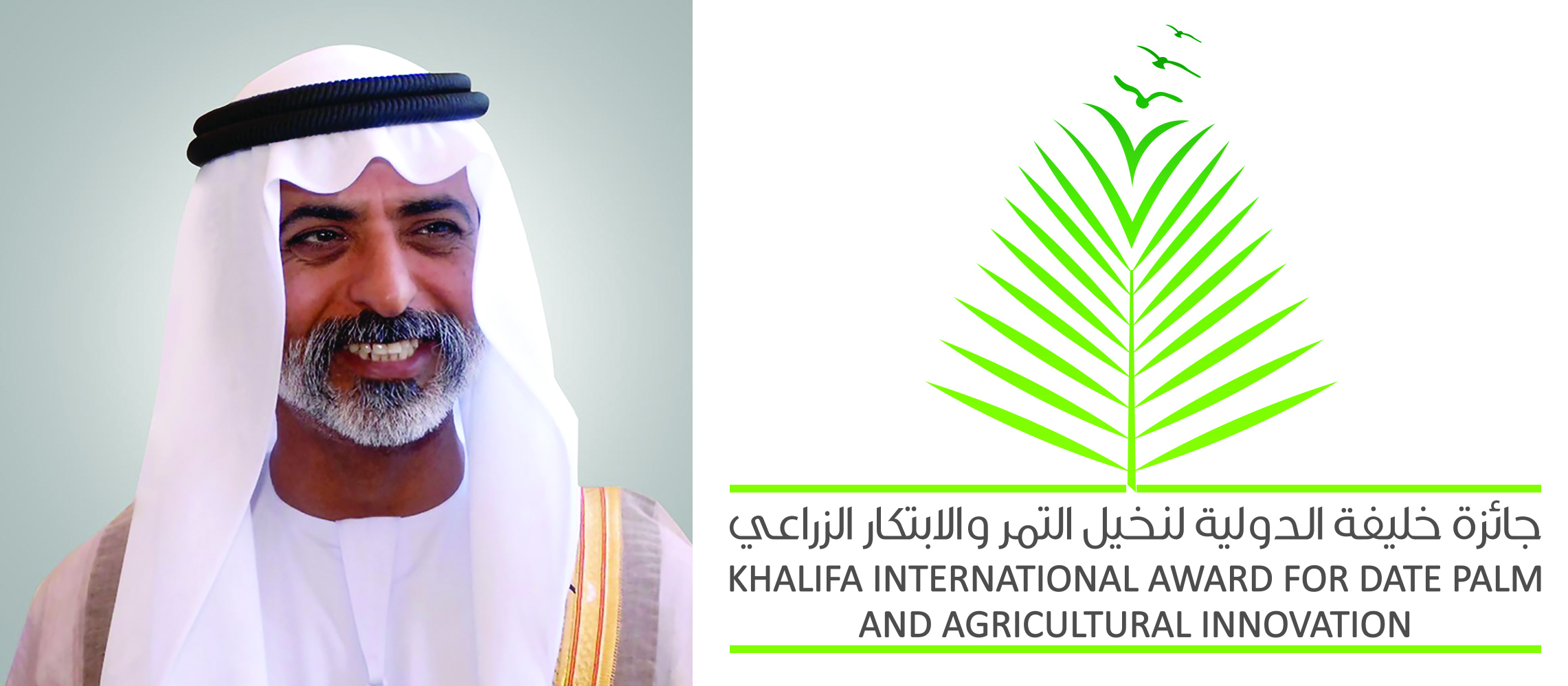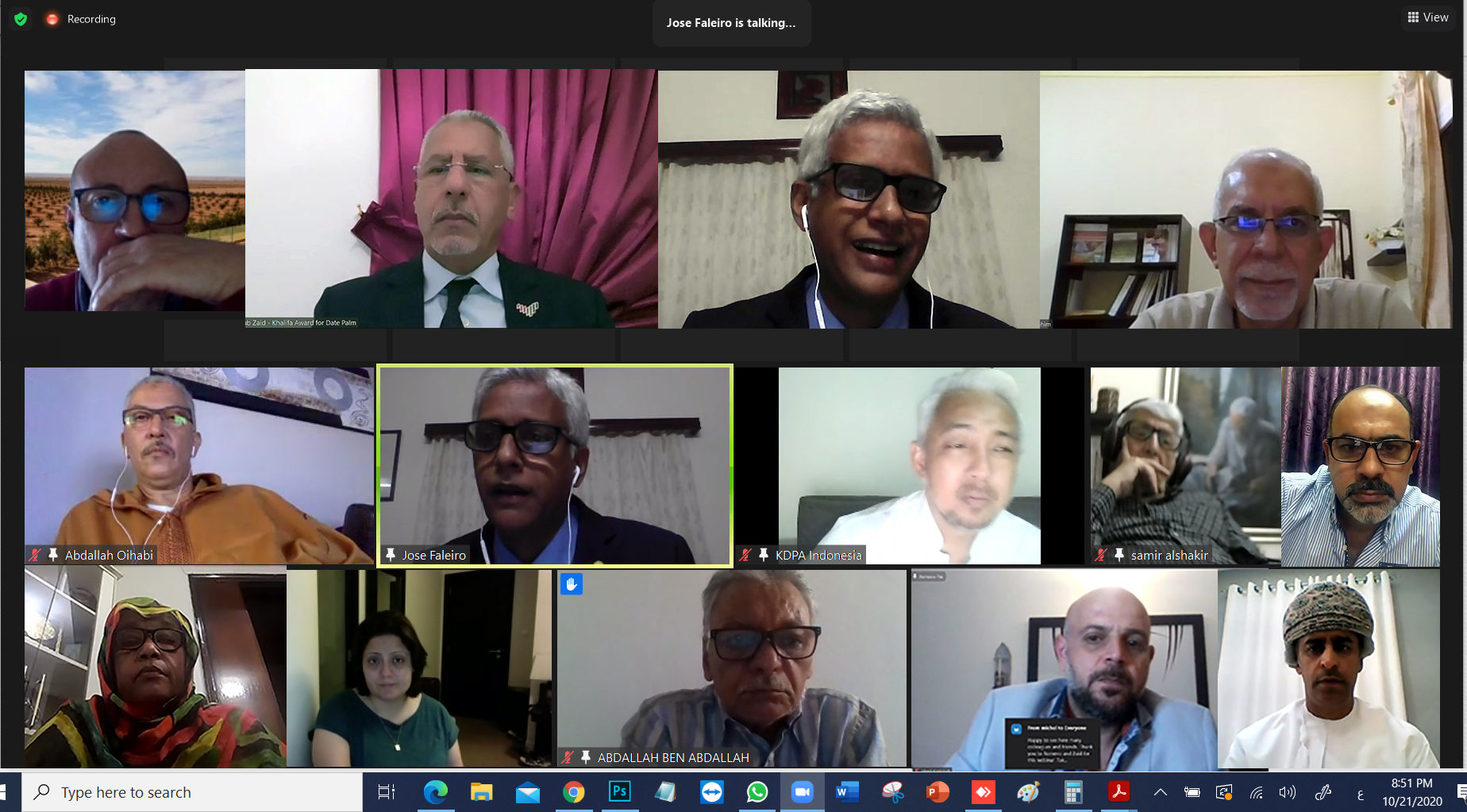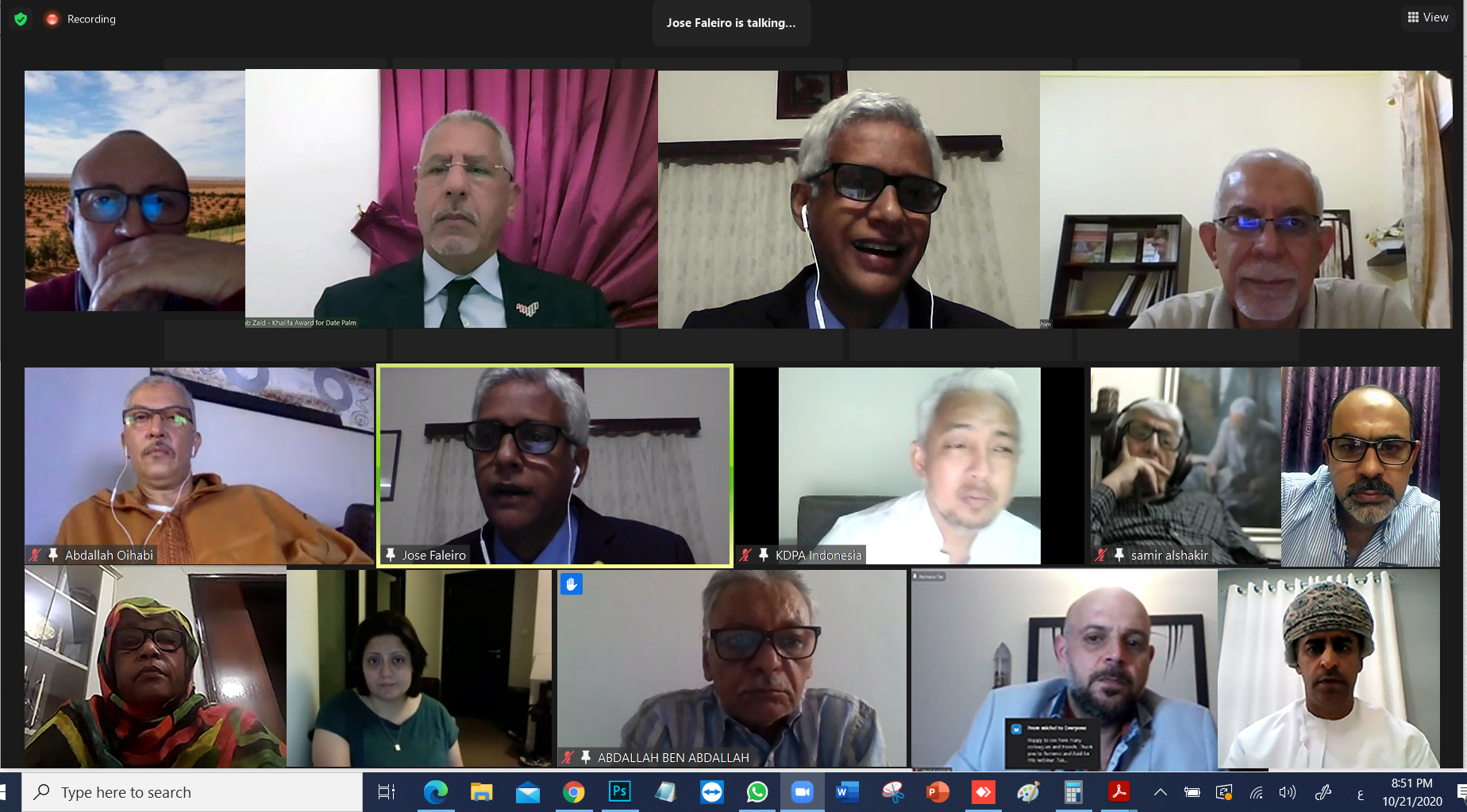
Award Program
Khalifa Award News
Abu Dhabi Date Palm Exhibition News
Egypt Festival News
Jordan Festival News
Sudan Festival News
Morocco Festival News
Mauritania Festival News
Mexico Festival News
Pakistan Festival News
International Conference News


Khalifa Award hosts international expert Jose Romeno Valero in a scientific lecture on
"Red Palm Weevil: Past, Present and Future"
The pest is spread in about 50 countries around the world from East Asia to the Middle East and Europe
Abu Dhabi, October 21, 2020
The Khalifa International Award for Date Palm and Agricultural Innovation organized a virtual lecture on Wednesday evening, October 21, 2020, on the Red Palm Weevil: Past, Present and Future, presented by international expert Dr. Jose Romeno Valero, with the participation of 63 people, who are elite farmers, producers, academics and specialists in palm cultivation, production and processing of dates, representing 13 countries around the world.
This virtual scientific symposium comes within the directives of His Excellency Sheikh Nahyan Mubarak Al Nahyan, Minister of Tolerance and Coexistence, Chairman of the Board of Trustees of the Award, within the framework of the award's commitment to spreading scientific knowledge and raising awareness of good palm practices to empower farmers and improve the quality of dates. Dr. Abdelouahhab Zaid, Secretary General of the Khalifa International Award for Date Palm and Agricultural Innovation, expressed his appreciation for the scientific and professional efforts made by Dr. José Romeno Faleiro, as one of the FAO experts in the field of red palm weevil. For his part, Dr. Faleiro pointed out that the red palm weevil is native to South and Southeast Asia where it was a major pest of coconuts and emerged as a major pest of palm trees in diverse agro-ecosystems around the world. The red palm weevil then entered the Middle East during the mid-1980s and spread rapidly throughout the world mainly through infected planting material that is transported for gardening or agriculture. The red palm weevil has also rapidly expanded its geographical range over the past three decades, and recent reports of red palm weevil invasion indicate that the pest is spreading in the Caucasus region where it was detected in Abkhazia on the Canary Islands in the Republic of Georgia and also from East Africa in Djibouti on date palms. During 2019, the red palm weevil was detected in Bulgaria in the Black Sea region as well as in Bosnia and Herzegovina in South-Eastern Europe. The pest is currently reported from about 50 countries. New reports of the pest are often associated with the organization of major international events that require large-scale palm planting.
Dr. Valero noted that during March 2017, the Food and Agriculture Organization of the United Nations organized a “High-Level Scientific Meeting on the Management of the Red Palm Weevil” and through the “Rome Declaration” called for the urgent need to combat the red palm weevil through collaborative efforts and commitments at the country, regional and global levels to stop the spread of this devastating pest. The framework strategy formulated for the eradication of the red palm weevil at the Rome meeting aims to support national programs to combat the red palm weevil.
He added that the core of the control strategy revolves around regular inspection to detect infested palm trees, trapping of adult palm weevils, preventive and curative chemical treatments, removal of severely infested palm trees and periodic verification of the control program. Supporting these components is the implementation of strict quarantine regimes to ensure the movement of RPW-free planting material along with the adoption of good agricultural practices including the adoption of optimal spacing between palms, prevention of wounds on palms and prompt treatment of frond injuries and removal of offshoots along with reducing in-furrow humidity by improving irrigation techniques and preventing irrigation water from contacting the collar area of the trunk. Capacity building of all stakeholders along with intensive extension programmes through electronic and print media are also part of the RPW control strategy.
Dr. Valero added that there are gaps and challenges in almost all components of the current RPW control strategy and IPM. Although there are several research publications and ongoing research programmes on RPW in many countries, there is an urgent need to further intensify RPW research to develop user-friendly technologies on early detection, phytosanitary measures, semi-chemical techniques, preventive and curative treatments, biological control, removal of severely infested palms and data collection for effective decision making that will enhance farmers’ participation in the management of this devastating pest.
At the end of the lecture, the lecturer praised the great role played by the Khalifa International Award for Date Palm and Agricultural Innovation in supporting and developing the palm cultivation sector and date production worldwide, especially in organizing the Conference of Ministers of Agriculture of Date Producing Countries to develop a framework strategy for the eradication of the Red Palm Weevil on March 9, 2019. The conference resulted in the launch of the Abu Dhabi Declaration and the establishment of the Red Palm Weevil Eradication Fund under the supervision of the Food and Agriculture Organization of the United Nations.












